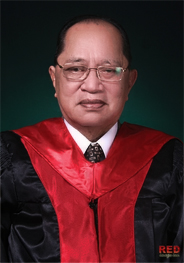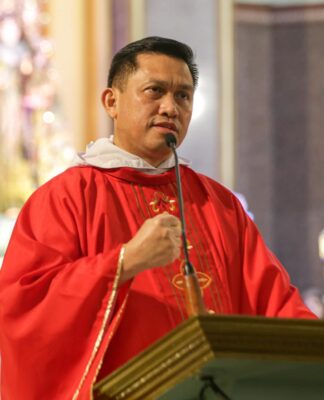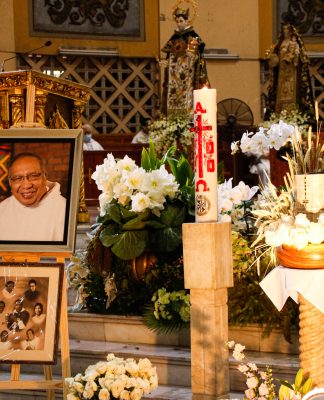
A PROFESSOR from the Faculty of Civil Law has challenged the constitutionality of the Legal Education Board (LEB), and the nationwide law admission exam that it administers, before the Supreme Court.
In a petition filed before the high tribunal last April 7, Oscar Pimentel and 16 others claimed that Republic Act (RA) 7662, the Legal Education Reform Act, is unconstitutional.
“We argued that Congress cannot create an administrative office or board that can exercise the power vested in the Supreme Court by the Constitution,” Pimentel told the Varsitarian.
“Dapat Supreme Court ang masusunod. [The] law [is] unconstitutional [because] it goes against the power of the Supreme Court,” he said.
Article 8, Section 5 of the 1987 Constitution states that the Supreme Court shall have the power over “admission to the practice of law, the integrated bar, and legal assistance to the underprivileged.”
The LEB conducted last April 16 the Philippine Law School Admission Test (PhiLSAT), a nationwide law school aptitude exam.
RA 7662 mandated the “creation and composition” of the LEB, which will be “attached solely for budgetary purposes and administrative support to the Department of Education, Culture and Sports.”
“Those powers and functions are given to an entity that is not linked to the Supreme Court itself…How will you be able to regulate the LEB when it is not connected to your office?” Pimentel asked.
Restrain implementation
Pimentel, who teaches criminal and remedial law, said his petition primarily seeks to stop the PhilSAT because of the burden it brings upon students.
“[`Y]ung isang mali pa diyan [ay] `yung pagbibigay nila ng power to promulgate rules and regulations such as the giving of entrance examinations… [A]ng gusto talaga namin [ay] `yung i-stop `yung Philsat kasi nakikita namin [na] burden sa mga estudyante,” he said.
Pimentel is a retired Makati Regional Trial Court judge. He obtained his Bachelor of Laws and Associate in Arts degrees from UST. He also teaches at the Ateneo University School of Law and Arellano University School of Law.
Other petitioners against the LEB were Errol Comafay, Rene Gorospe, Edwin Sandoval, Elgin Michael Perez, Arnold Cacho, Irene Tolentino and former Varsitarian staff member Kristine Jane Liu.
Last April 19, the Supreme Court gave the LEB 10 days to respond to the petition.
Law dean supports LEB
Civil Law Dean Nilo Divina expressed support for the LEB, saying the office provided a more efficient admissions examination for aspiring law students.
“[UST has] been very supportive of the LEB. In fact, the University agreed to host the PhilSAT last April 16. It may pose some inconvenience because you need to pay an additional fee and go to testing centers [but] we see the objective as quite noble,” he said.
“Not all law schools conduct their own admission test so that’s the idea itself. It’s the nationwide examination to determine who are fit to law schools,” Divina said.
Last Dec. 29, the LEB issued Memorandum Order No. 7, series of 2016 calling for a “nationwide uniform law school test in all law schools in the country.”
UST was designated as a testing for the first-ever PhilSAT last April 16, hosting 4,022 examinees in Manila. A total of 8,120 examinees took the test in 10 testing sites in the Philippines.
RELATED STORIES:
UST hosts nationwide law aptitude exam
Civil Law eyes higher admission test passing score

















Philsat is okay. However, there should be other exam schedules because there are students who failed to take. Since, this is the first implementation, LEB should be lenient.